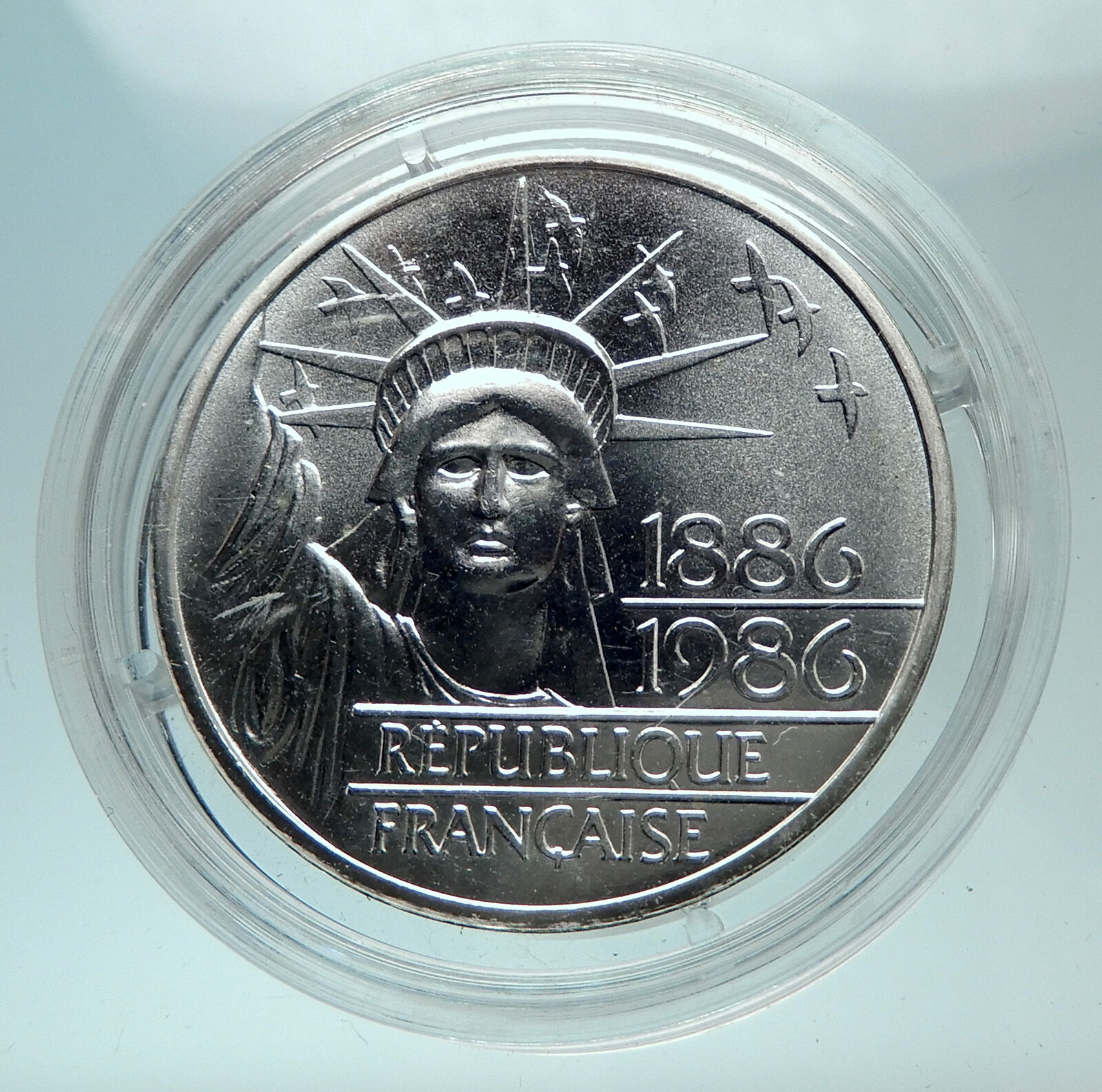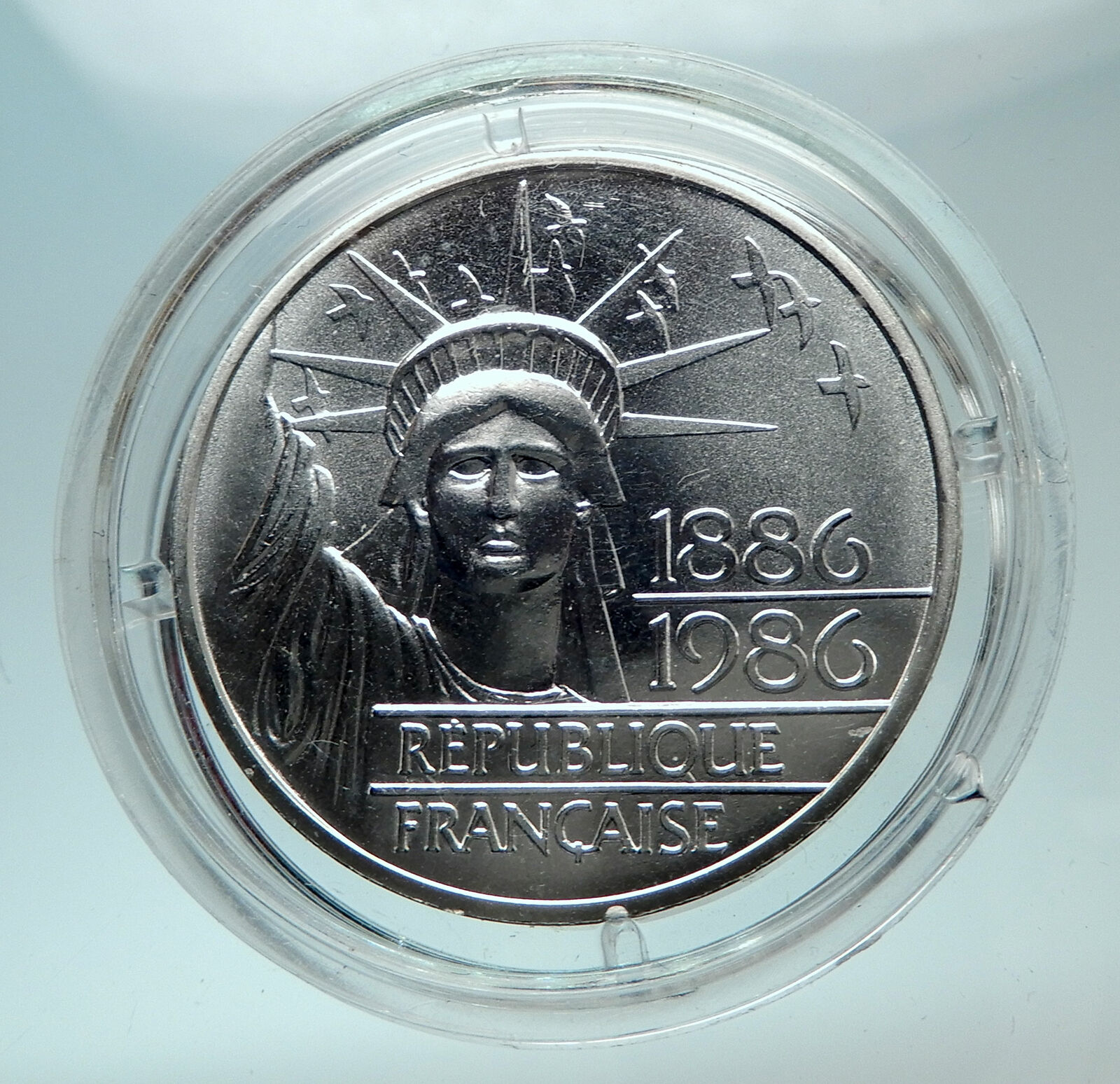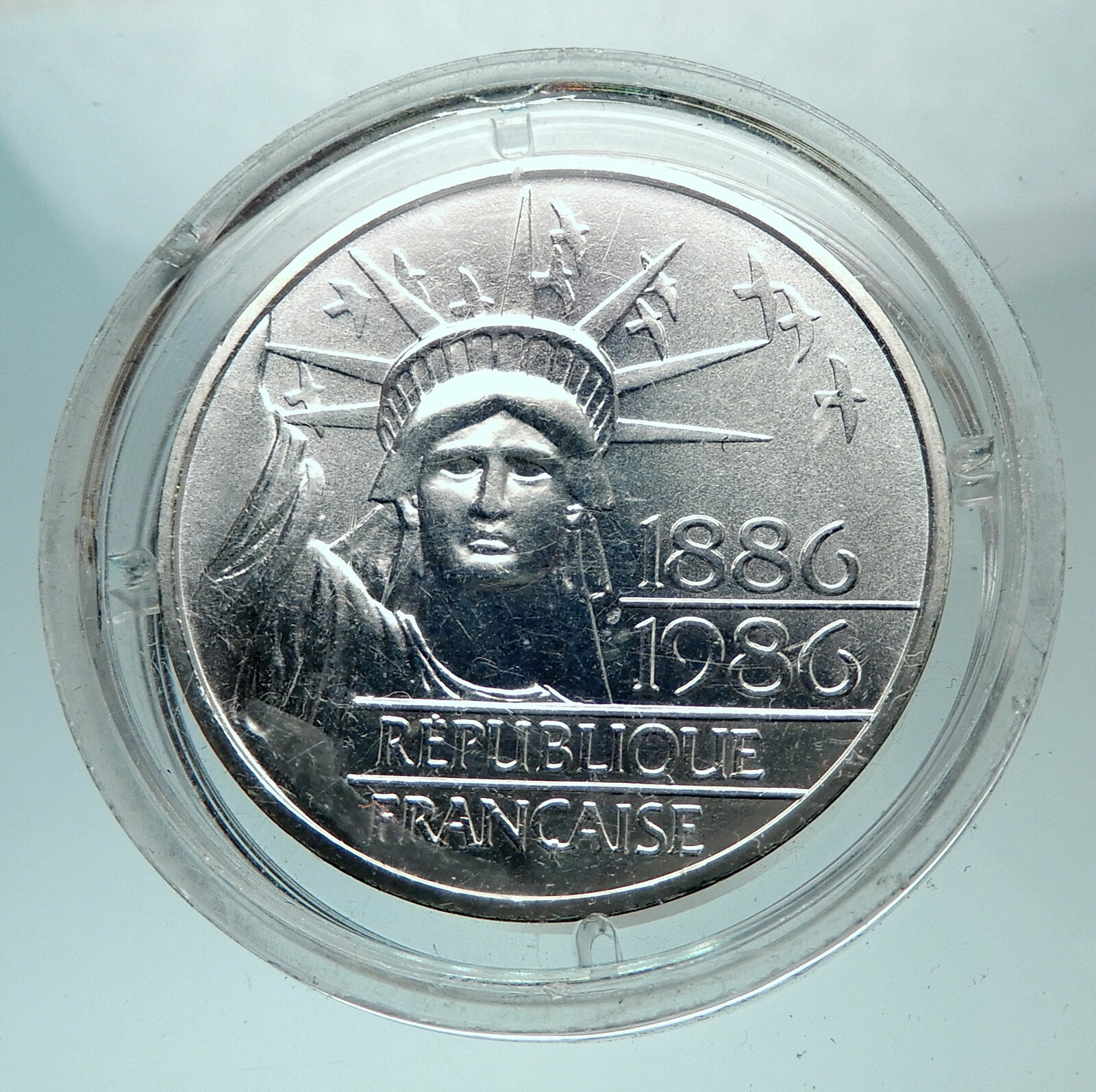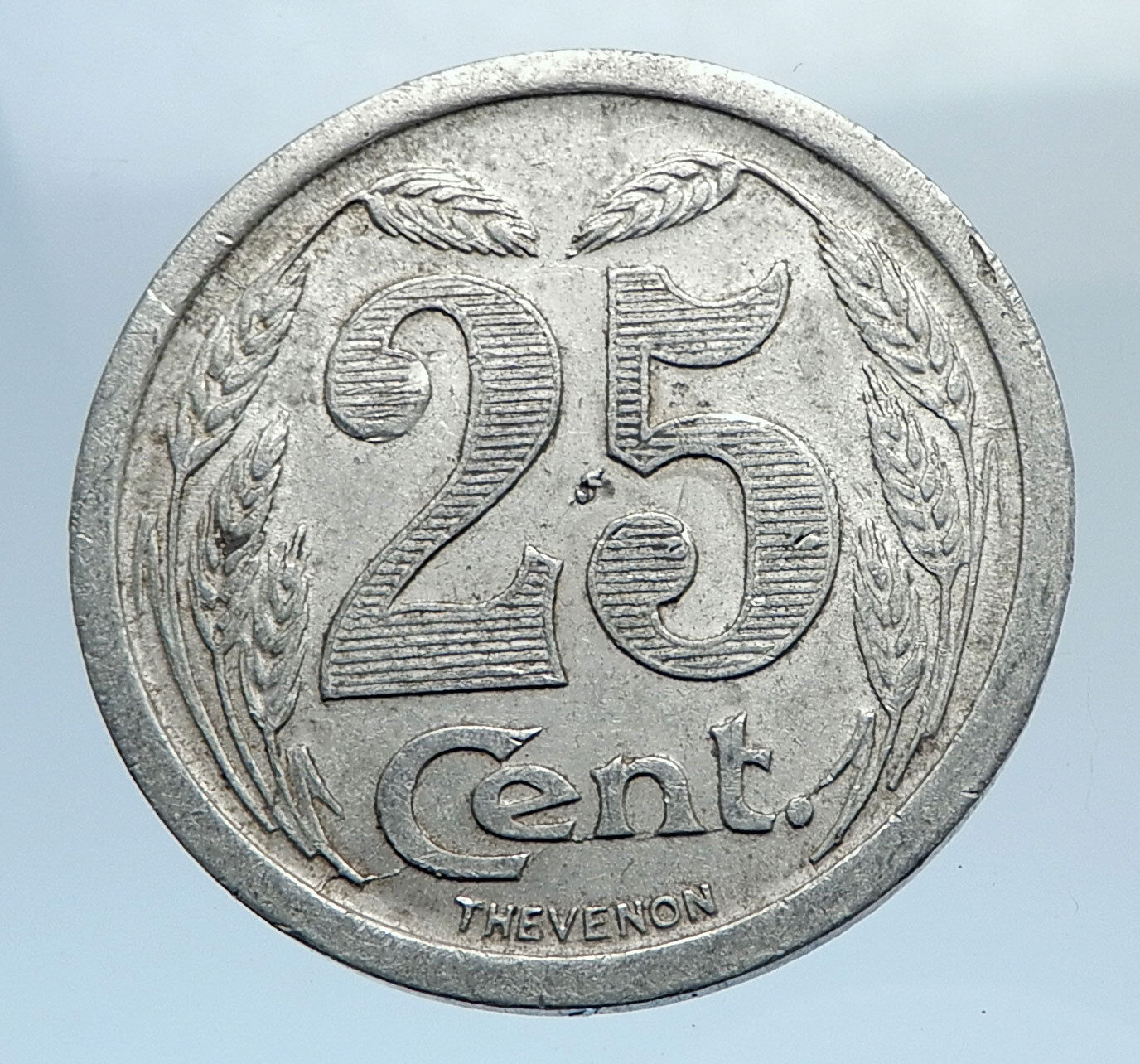|
France
100th Anniversary of the Birth of Emile Zola Germinal
1985 Proof Silver 100 Francs 31mm (15.00 grams) 0.950 Silver (0.4581 oz. ASW)
Reference: F# 453 Var., KM# 957a | Engraver: Jean Luc Maréchal d’après Alain Le Breton (Dessinateur)
LIBERTE · EGALITE · FRATERNITE 100F le breton RÉPUBLIQUE 1985 FRANÇAISE, Stylized factory.
1885-1985 EMILE ZOLA GERMINAL, Emile facing right.
You are bidding on the exact item pictured, provided with a Certificate of Authenticity and Lifetime Guarantee of Authenticity.
 Émile Édouard Charles Antoine Zola (2 April 1840 – 29 September 1902) was a French novelist, journalist, playwright, the best-known practitioner of the literary school of naturalism, and an important contributor to the development of theatrical naturalism. He was a major figure in the political liberalization of France and in the exoneration of the falsely accused and convicted army officer Alfred Dreyfus, which is encapsulated in his renowned newspaper opinion headlined J’Accuse…! Zola was nominated for the first and second Nobel Prize in Literature in 1901 and 1902. Émile Édouard Charles Antoine Zola (2 April 1840 – 29 September 1902) was a French novelist, journalist, playwright, the best-known practitioner of the literary school of naturalism, and an important contributor to the development of theatrical naturalism. He was a major figure in the political liberalization of France and in the exoneration of the falsely accused and convicted army officer Alfred Dreyfus, which is encapsulated in his renowned newspaper opinion headlined J’Accuse…! Zola was nominated for the first and second Nobel Prize in Literature in 1901 and 1902.
More than half of Zola’s novels were part of the twenty-volume Les Rougon-Macquart cycle, which details the history of a single family under the reign of Napoléon III. Unlike Balzac, who in the midst of his literary career resynthesized his work into La Comédie Humaine, Zola from the start, at the age of 28, had thought of the complete layout of the series. ] Set in France’s Second Empire, in the context of Baron Haussmann’s changing Paris, the series traces the environmental and hereditary influences of violence, alcohol, and prostitution which became more prevalent during the second wave of the Industrial Revolution. The series examines two branches of the family—the respectable (that is, legitimate) Rougons and the disreputable (illegitimate) Macquarts—over five generations.
In the preface to the first novel of the series, Zola states, “I want to explain how a family, a small group of regular people, behaves in society, while expanding through the birth of ten, twenty individuals, who seem at first glance profoundly dissimilar, but who are shown through analysis to be intimately linked to one another. Heredity has its own laws, just like gravity. I will attempt to find and to follow, by resolving the double question of temperaments and environments, the thread that leads mathematically from one man to another.”
Although Zola and Cézanne were friends from childhood, they experienced a falling out later in life over Zola’s fictionalised depiction of Cézanne and the Bohemian life of painters in Zola’s novel L’Œuvre (The Masterpiece, 1886).
From 1877, with the publication of L’Assommoir, Émile Zola became wealthy; he was better paid than Victor Hugo, for example. Because L’Assommoir was such a success, Zola was able to renegotiate his contract with his publisher Georges Charpentier to receive more than 14% royalties and the exclusive rights to serial publication in the press. Subsequently, sales of L’Assommoir were even exceeded by those of Nana (1880) and La Débâcle (1892). He became a figurehead among the literary bourgeoisie and organised cultural dinners with Guy de Maupassant, Joris-Karl Huysmans, and other writers at his luxurious villa (worth 300,000 francs) in Médan, near Paris, after 1880. Despite being nominated several times, Zola was never elected to the Académie française.
Zola’s output also included novels on population (Fécondité) and work (Travail), a number of plays, and several volumes of criticism. He wrote every day for around 30 years, and took as his motto Nulla dies sine linea (“not a day without a line”).
The self-proclaimed leader of French naturalism, Zola’s works inspired operas such as those of Gustave Charpentier, notably Louise in the 1890s. His works, inspired by the concept of heredity and milieu (Claude Bernard and Hippolyte Taine) and by the realism of Balzac and Flaubert. He also provided the libretto for several operas by Alfred Bruneau, including Messidor (1897) and L’Ouragan (1901); several of Bruneau’s other operas are adapted from Zola’s writing. These provided a French alternative to Italian verismo.
He is considered to be a significant influence on those writers that are credited with the creation of the so-called new journalism; Wolfe, Capote, Thompson, Mailer, Didion, Talese and others. Tom Wolfe wrote that his goal in writing fiction was to document contemporary society in the tradition of John Steinbeck, Charles Dickens, and Émile Zola.
  Francee, officially the French Republic (French: République française), is a sovereign state comprising territory in western Europe and several overseas regions and territories. The European part of France, called Metropolitan France, extends from the Mediterranean Sea to the English Channel and the North Sea, and from the Rhine to the Atlantic Ocean. France spans 640,679 square kilometres (247,368 sq mi) and has a total population of 67 million. It is a unitary semi-presidential republic with the capital in Paris, the country’s largest city and main cultural and commercial centre. The Constitution of France establishes the state as secular and democratic, with its sovereignty derived from the people. Francee, officially the French Republic (French: République française), is a sovereign state comprising territory in western Europe and several overseas regions and territories. The European part of France, called Metropolitan France, extends from the Mediterranean Sea to the English Channel and the North Sea, and from the Rhine to the Atlantic Ocean. France spans 640,679 square kilometres (247,368 sq mi) and has a total population of 67 million. It is a unitary semi-presidential republic with the capital in Paris, the country’s largest city and main cultural and commercial centre. The Constitution of France establishes the state as secular and democratic, with its sovereignty derived from the people.
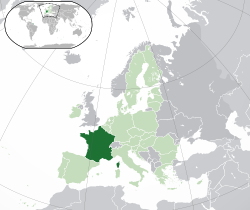
During the Iron Age, what is now Metropolitan France was inhabited by the Gauls, a Celtic people. The Gauls were conquered in 51 BC by the Roman Empire, which held Gaul until 486. The Gallo-Romans faced raids and migration from the Germanic Franks, who dominated the region for hundreds of years, eventually creating the medieval Kingdom of France. France emerged as a major European power in the Late Middle Ages, with its victory in the Hundred Years’ War (1337 to 1453) strengthening French state-building and paving the way for a future centralized absolute monarchy. During the Renaissance, France experienced a vast cultural development and established the beginning of a global colonial empire. The 16th century was dominated by religious civil wars between Catholics and Protestants (Huguenots).
France became Europe’s dominant cultural, political, and military power under Louis XIV. French philosophers played a key role in the Age of Enlightenment during the 18th century. In 1778, France became the first and the main ally of the new United States in the American Revolutionary War. In the late 18th century, the absolute monarchy was overthrown in the French Revolution. Among its legacies was the Declaration of the Rights of Man and of the Citizen, one of the earliest documents on human rights, which expresses the nation’s ideals to this day. France became one of modern history’s earliest republics until Napoleon took power and launched the First French Empire in 1804. Fighting against a complex set of coalitions during the Napoleonic Wars, he dominated European affairs for over a decade and had a long-lasting impact on Western culture. Following the collapse of the Empire, France endured a tumultuous succession of governments: the monarchy was restored, it was replaced in 1830 by a constitutional monarchy, then briefly by a Second Republic, and then by a Second Empire, until a more lasting French Third Republic was established in 1870. By the 1905 law, France adopted a strict form of secularism, called laïcité, which has become an important federative principle in the modern French society.
France reached its territorial height during the 19th and early 20th centuries, when it ultimately possessed the second-largest colonial empire in the world. In World War I, France was one of the main winners as part of the Triple Entente alliance fighting against the Central Powers. France was also one of the Allied Powers in World War II, but came under occupation by the Axis Powers in 1940. Following liberation in 1944, a Fourth Republic was established and later dissolved in the course of the Algerian War. The Fifth Republic, led by Charles de Gaulle, was formed in 1958 and remains to this day. Following World War II, most of the empire became decolonized.
Throughout its long history, France has been a leading global center of culture, making significant contributions to art, science, and philosophy. It hosts Europe’s third-largest number of cultural UNESCO World Heritage Sites (after Italy and Spain) and receives around 83 million foreign tourists annually, the most of any country in the world. France remains a great power with significant cultural, economic, military, and political influence. It is a developed country with the world’s sixth-largest economy by nominal GDP and eight-largest by purchasing power parity. According to Credit Suisse, France is the fourth wealthiest nation in the world in terms of aggregate household wealth. It also possesses the world’s second-largest exclusive economic zone (EEZ), covering 11,035,000 square kilometres (4,261,000 sq mi).
French citizens enjoy a high standard of living, and the country performs well in international rankings of education, health care, life expectancy, civil liberties, and human development. France is a founding member of the United Nations, where it serves as one of the five permanent members of the UN Security Council. It is a member of the Group of 7, North Atlantic Treaty Organization (NATO), Organisation for Economic Co-operation and Development (OECD), the World Trade Organization (WTO), and La Francophonie. France is a founding and leading member state of the European Union (EU).
|





 Émile Édouard Charles Antoine Zola (2 April 1840 – 29 September 1902) was a French novelist, journalist, playwright, the best-known practitioner of the literary school of naturalism, and an important contributor to the development of theatrical naturalism. He was a major figure in the political liberalization of France and in the exoneration of the falsely accused and convicted army officer Alfred Dreyfus, which is encapsulated in his renowned newspaper opinion headlined J’Accuse…! Zola was nominated for the first and second Nobel Prize in Literature in 1901 and 1902.
Émile Édouard Charles Antoine Zola (2 April 1840 – 29 September 1902) was a French novelist, journalist, playwright, the best-known practitioner of the literary school of naturalism, and an important contributor to the development of theatrical naturalism. He was a major figure in the political liberalization of France and in the exoneration of the falsely accused and convicted army officer Alfred Dreyfus, which is encapsulated in his renowned newspaper opinion headlined J’Accuse…! Zola was nominated for the first and second Nobel Prize in Literature in 1901 and 1902.
 Francee, officially the French Republic (French: République française), is a sovereign state comprising territory in western Europe and several overseas regions and territories. The European part of France, called Metropolitan France, extends from the Mediterranean Sea to the English Channel and the North Sea, and from the Rhine to the Atlantic Ocean. France spans 640,679 square kilometres (247,368 sq mi) and has a total population of 67 million. It is a unitary semi-presidential republic with the capital in Paris, the country’s largest city and main cultural and commercial centre. The Constitution of France establishes the state as secular and democratic, with its sovereignty derived from the people.
Francee, officially the French Republic (French: République française), is a sovereign state comprising territory in western Europe and several overseas regions and territories. The European part of France, called Metropolitan France, extends from the Mediterranean Sea to the English Channel and the North Sea, and from the Rhine to the Atlantic Ocean. France spans 640,679 square kilometres (247,368 sq mi) and has a total population of 67 million. It is a unitary semi-presidential republic with the capital in Paris, the country’s largest city and main cultural and commercial centre. The Constitution of France establishes the state as secular and democratic, with its sovereignty derived from the people.


